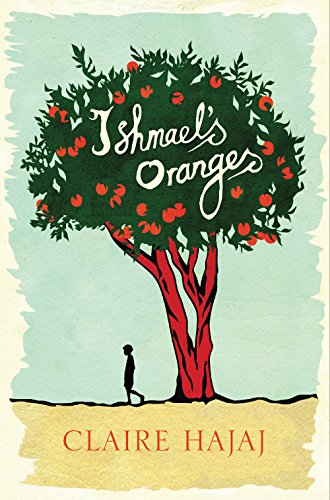Salim is just a child when, forced by war, his family must leave their farm in Jaffa, and the orange tree that his father planted upon his birth. This exile splinters his family beyond repair. As he grows up and leaves for school in Britain, he never forgets the orange tree tethering him to Jaffa. Changing his name to Sal, at a party, he meets Jude, a Jewish woman who has had her own experience of religious hatred and intolerance. Not without difficulty, working through deep, longstanding emotions about each other's religious and cultural identity, and despite heavy familial opposition, they fall in love and marry, determined to be together and to make things work. They carve out a life far from the Israeli-Palestinian conflict but they cannot remain inured to it forever; they will ultimately have to face their own pasts, prejudices, and deep seated beliefs. Confronting those bone deep issues may just break the family they've created.
The first half of the book, which offers equally the perspective of Sal and Jude both, is stronger than the second half, where Jude's perspective is often lost. The frame of the opening letter, which only becomes clear in the end, could work but since it takes so long for the reader to understand it in its entirety, it loses a lot of its power and immediacy. But the writing is clear and unbiased and the characters' emotions are stark, affecting, and very real. The ending of the story is small and hopeful despite the sadness and horror that precedes it, leaving open the question of whether or not there can ever be true peace between these two groups of people who have hated for so long. There are stories and memories that foster anger long into the future but there are also the memories of happiness and love as well. We just have to choose which memories will triumph.
Hajaj has written a moving and poignant tale of humanity, the marginalizing of the "other,", the issue and importance of identity, and the often overlooked personal cost of the continuing fight between the Israelis and the Palestinians. She doesn't offer any easy answers to the social issues confronting Sal and Jude; in fact, sadly, even love can't always overcome everything and prevent tragedy. The novel, with its love story and themes of racism, obsession, and hunger for justice, provides an interesting perspective on the political being personal, the way that those around us shape our beings and beliefs, and the power of childhood hurts and betrayals.
Thanks to the publisher for sending me a copy of the book for review.







Not easy to overcome generations of prejudice and intolerance. Sounds a good read.
ReplyDelete